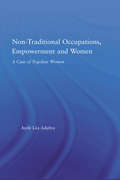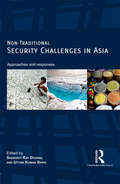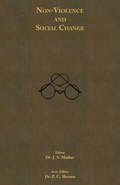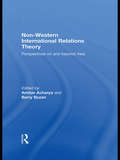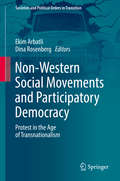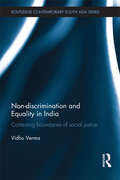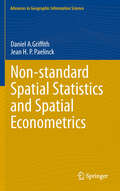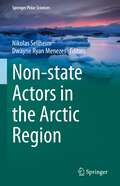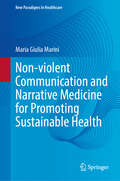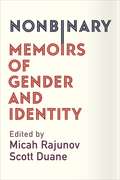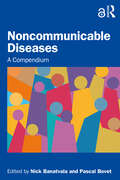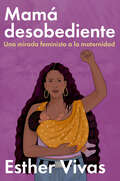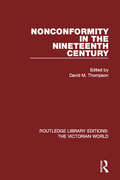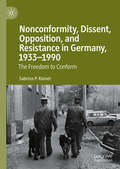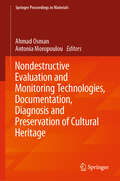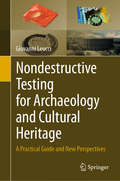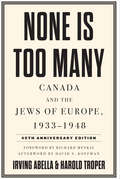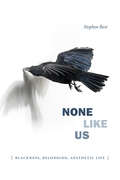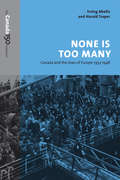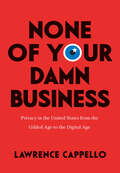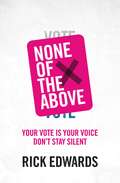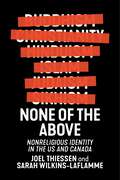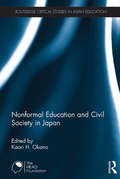- Table View
- List View
Non-Traditional Occupations, Empowerment, and Women: A Case of Togolese Women (African Studies)
by Ayélé Léa AdubraThis study explores the relationship between the nature and context of non-traditional occupations and the empowerment status of women in society. Specifically, it examines the extent to which women in non-traditional occupations have been empowered by their skills, knowledge, and position within the Togolese Government's existing training policies for the increased participation of women in non-traditional sectors of the labor force.
Non-Traditional Security Challenges in Asia: Approaches and Responses
by Shebonti Ray Dadwal and Uttam Kumar SinhaAsia is challenged by a number of non-traditional security issues including the food�energy�water nexus, climate change, transnational crime, terrorism, disaster relief and economic performance. This volume categorizes and clarifies some key emerging issues in the area and looks at their interconnectedness and implications.The essays explore how non-traditional issues can manifest as security challenges, and the role of the state and military in dealing with these. Issue-based and area-specific, they rely on facts and interpretation of data, avoiding alarmist predictions. A nuanced and analytical approach into an uncharted area, this book will be essential for policymakers, researchers and students of security and strategic studies, foreign policy, sociology and political economy, as well as the general readers.
Non-Violence and Social Change
by J. S. Mathur“In this hurricane of annihilating material power mankind will not be able to save itself from self destruction unless we all of us manage to practise non-violence in our relations with our fellow-men.” — Arnold Toynbee "Humanity stands at cross-road today. Several scholars and statesmen are worried about the catastrophe that humanity faces if we do not act with restraint and reason. Eminent scholars are now advocating increasing relevance on Gandhian techniques. At such juncture, the papers presented by 46 scholars for the seminar on ‘Non-violence and Social Change’ held in 1971 are being published in the present volume with the hope that it rouses in the academic community a desire to study Gandhiji’s ideas in all its ramification."
Non-Western International Relations Theory: Perspectives On and Beyond Asia
by Barry Buzan Amitav AcharyaGiven that the world has moved well beyond the period of Western colonialism, and clearly into a durable period in which non-Western cultures have gained their political autonomy, it is long past time that non-Western voices had a higher profile in debates about international relations, not just as disciples of Western schools of thought, but as inventors of their own approaches. Western IR theory has had the advantage of being the first in the field, and has developed many valuable insights, but few would defend the position that it captures everything we need to know about world politics. In this book, Acharya and Buzan introduce non-Western IR traditions to a Western IR audience, and challenge the dominance of Western theory. An international team of experts reinforce existing criticisms that IR theory is Western-focused and therefore misrepresents and misunderstands much of world history by introducing the reader to non-Western traditions, literature and histories relevant to how IR is conceptualised. Including case studies on Chinese, Japanese, South Korean, Southeast Asian, Indian and Islamic IR this book redresses the imbalance and opens up a cross-cultural comparative perspective on how and why thinking about IR has developed in the way it has. As such, it will be invaluable reading for both Western and Asian audiences interested in international relations theory.
Non-Western Social Movements and Participatory Democracy
by Ekim Arbatli Dina RosenbergThis book analyzes social movements across a range of countries in the non-Western world: Bosnia, Brazil, Egypt, India, Iran, Palestine, Russia, Syria, Turkey and Ukraine in the period 2008 to 2016. The individual case studies investigate how political and social goals are framed nationally and globally, and the types of mobilization strategies used to pursue them. The studies also assess how, in the age of transnationalism, the idea of participatory democracy produces new collective-action frames and mass-mobilization strategies. The book challenges the view that most social movements unequivocally seek to achieve higher levels of democratization. Instead, the authors argue that protesters across different movements advocate more involved forms of citizen participation, since passive representation through liberal democratic institutions fails to address mass grievances and demands for accountability in many countries.
Non-consensual Image-based Sexual Offending: Bridging Legal and Psychological Perspectives (Palgrave Studies in Cyberpsychology)
by Craig A. Harper Dean FidoThis book presents a timely analysis of the psychological influences, underpinnings, and predictors of non-consensual image-based sexual offending (NCIBSO), such as revenge pornography, cyber-flashing, deepfake media production and upskirting. In this rapidly expanding field, this book offers a novel perspective that encompasses both a forensic psychoanalytic analysis of offending behaviours and an examination of the influence of our use of online environments and digital platforms on these behaviours. The authors begin by outlining the historical and legal context before moving on to a critique of previously posited motivating factors. Rather than conceptualising NCIBSO in purely gendered terms, they demonstrate the potential for a psychological framework to facilitate a better understanding of how and why people engage in a range of non-consensual sexual image offences. In doing so it will provide fresh insights for policymakers and clinicians, in addition to scholars from across the fields of psychology, sociology, criminology, law, media and gender studies.
Non-discrimination and Equality in India: Contesting Boundaries of Social Justice (Routledge Contemporary South Asia Series)
by Vidhu VermaSocial Justice is a concept familiar to most Indians but one whose meaning is not always understood as it signifies a variety of government strategies designed to enhance opportunities for underprivileged groups. By tracing the trajectory of social justice from the colonial period to the present, this book examines how it informs ideas, practices and debates on discrimination and disadvantage today. After outlining the historical context for reservations for scheduled castes and scheduled tribes that began under British colonial rule, the book examines the legal and moral strands of demands raised by newer groups since 1990. In addition the book shows how the development of quota policies has been significantly influenced by the nature and operation of democracy in India. It describes the recent proliferation of quota demands for reservations in higher education, private sector and for women and religious minorities in legislative assemblies. The book goes on to argue that while proliferation of demands address unequal incidence of poverty, deprivation and inequalities across social groups and communities, care has to be taken to ensure that existing justifications for quotas for discriminated groups due to caste hierarchies are not undermined. Providing a rich historical background to the subject, the book is a useful contribution to the study on the evolution of multiple conceptions of social justice in contemporary India.
Non-standard Spatial Statistics and Spatial Econometrics
by Daniel A. Griffith Jean H. PaelinckDespite spatial statistics and spatial econometrics both being recent sprouts of the general tree "spatial analysis with measurement"--some may remember the debate after WWII about "theory without measurement" versus "measurement without theory"--several general themes have emerged in the pertaining literature. But exploring selected other fields of possible interest is tantalizing, and this is what the authors intend to report here, hoping that they will suscitate interest in the methodologies exposed and possible further applications of these methodologies. The authors hope that reactions about their publication will ensue, and they would be grateful to reader(s) motivated by some of the research efforts exposed hereafter letting them know about these experiences.
Non-state Actors in the Arctic Region (Springer Polar Sciences)
by Nikolas Sellheim Dwayne Ryan MenezesThis book comprehensively discusses the role that non-state actors play in the Arctic and assesses the normative role of these actors. Beyond any organised forum, there are actors that have a significant impact on the way the Arctic is developed, adjudicated, managed, perceived, presented and represented. This book complements the literature on non-state actors in international law and international security, world politics and international relations and provides a geographical account of their role for the Arctic. The book content is not limited to a specific discipline, but takes into account different approaches to the topic. This means that it contains three types of contributions: research articles, shorter research notes and commentaries. While the research articles constitute the main body of the work, it is also the research notes which provide an insight into issues related to the topic of the book.
Non-violent Communication and Narrative Medicine for Promoting Sustainable Health (New Paradigms in Healthcare)
by Maria Giulia MariniThe Covid-19 pandemic and current international circumstances have left many individuals feeling vulnerable, both economically and psychologically. At the same time, pressure is put on healthcare systems, particularly in Europe, resulting in doctor shortages, heavy workloads, and low salaries for healthcare workers. Patients are experiencing longer waiting lists, shorter visiting times, and emergency rooms that underestimate patients' clinical problems. As a result, episodes of self-violence and violence resulting from different causes are happening more frequently, also in hospitals. However, there is hope, and it starts with sharing our needs, thoughts, and feelings. This is where narrative medicine comes into play, as it helps bring stories to light, listen, ask open questions, analyze the spoken words, metaphors, and timing of communication, and promote a non-violent narrative. The key is to transition from violent to non-violent narratives and the consideration of relationship as a fundamental part of the therapeutic process, deserving an in-depth educational program. This is even more true if one considers that the ecosystem of health, together with the inclusion of diversity and the promotion of peace, is one of the main pillars of the UN Sustainable Development Goals.This book aims to inspire care for one another through the narratives of people with disabilities, patients, nurses, doctors, students, carers, and individuals who meet otherness and resolve conflicts.
Nonbinary: Memoirs of Gender and Identity
by Micah Rajunov Scott DuaneWhat happens when your gender doesn’t fit neatly into the categories of male or female? Even mundane interactions like filling out a form or using a public bathroom can be a struggle when these designations prove inadequate. In this groundbreaking book, thirty authors highlight how our experiences are shaped by a deeply entrenched gender binary.The powerful first-person narratives of this collection show us a world where gender exists along a spectrum, a web, a multidimensional space. Nuanced storytellers break away from mainstream portrayals of gender diversity, cutting across lines of age, race, ethnicity, ability, class, religion, family, and relationships. From Suzi, who wonders whether she’ll ever “feel” like a woman after living fifty years as a man, to Aubri, who grew up in a cash-strapped fundamentalist household, to Sand, who must reconcile the dual roles of trans advocate and therapist, the writers’ conceptions of gender are inextricably intertwined with broader systemic issues. Labeled gender outlaws, gender rebels, genderqueer, or simply human, the voices in Nonbinary illustrate what life could be if we allowed the rigid categories of “man” and “woman” to loosen and bend. They speak to everyone who has questioned gender or has paused to wonder, What does it mean to be a man or a woman—and why do we care so much?
Noncommunicable Diseases: A Compendium
by Nick Banatvala and Pascal BovetNoncommunicable Diseases: A Compendium introduces readers to noncommunicable diseases (NCDs) – what they are, their burden, their determinants and how they can be prevented and controlled. Focusing on cardiovascular disease, diabetes, cancer and chronic respiratory disease and their five shared main risk factors (tobacco use, harmful use of alcohol, unhealthy diet, physical inactivity and air pollution) as defined by the United Nations, this book provides a synopsis of one of the world’s biggest challenges of the 21st century. NCDs prematurely claim the lives of millions of people across the world every year, with untold suffering to hundreds of millions more, trapping many people in poverty and curtailing economic growth and sustainable development. While resources between and within countries largely differ, the key principles of surveillance, prevention and management apply to all countries, as does the need to focus resources on the most cost-effective and affordable interventions and the need for strong political will, sufficient resources, and sustained and broad partnerships. This compendium consists of 59 short and accessible chapters in six sections: (i) describing and measuring the burden and impact of NCDs; (ii) the burden, epidemiology and priority interventions for individual NCDs; (iii) social determinants and risk factors for NCDs and priority interventions; (iv) global policy; (v) cross-cutting issues; and (vi) stakeholder action. Drawing on the expertise of a large and diverse team of internationally renowned policy and academic experts, the book describes the key epidemiologic features of NCDs and evidence-based interventions in a concise manner that will be useful for policymakers across all parts of society, as well as for public health and clinical practitioners.
Noncompliant Mom \ Mamá desobediente: Una mirada feminista a la maternidad
by Esther Vivas¿Es posible ser mamá y feminista al mismo tiempo? ¿Hay alguna salida al dilema «carrera vs. familia»? Si hemos elegido se madres, ¿hasta que punto podemos decidir sobre nuestra maternidad?En Mamá desobediente, la periodista, socióloga y madre feminista, Esther Vivas aborda éstas y otras interrogantes cuando explora la maternidad con emancipación y sin imposiciones. Con un tono fresco pero riguroso, respaldado en una investigación rigurosa y en la experiencia personal de la autora, este libro trata los asuntos menos frecuentados sobre la maternidad, como la infertilidad, el embarazo, el parto, la violencia obstétrica y la lactancia. Ofrece también una guía y herramientas factibles para quienes deseen emprender este recorrido desde una postura diferente.El enfoque de Vivas es fresco y refleja la necesidad que hay, entre las generaciones jóvenes, de opiniones disruptivas, realistas y políticas sobre la maternidad y la paternidad, alejadas de la excesiva idealización que ignora sus obstáculos y retos, y los limita a ser tratados exclusivamente como un asunto privado. En los últimos años, éste se ha convertido en un tema recurrente en la literatura en lengua española, sobre todo en la nueva ola de escritoras latinoamericanas, pero sigue siendo un terreno inexplorado en los géneros de no ficción.———Is it possible to be a mother and a feminist at the same time? Is there a way out of the "career vs. family" dilemma? If we have chosen to be mothers, to what extent can we decide about our motherhood?In Mamá desobediente, the Spanish journalist, sociologist, and feminist mom Esther Vivas tackles these and other interrogations, exploring maternity in an emancipating way and without impositions. With a fresh but rigorous note, underpinned in deep research and author’s personal experience, this book addresses commonly neglected issues surrounding maternity, such as infertility, pregnancy, childbirth, obstetric violence, and breastfeeding, and offers guidance and actionable tools for those who desire to embark in this journey from a different standpoint. Vivas’ approach feels fresh and reflects the appetite amongst younger generations for disruptive, realistic, and political takes on maternity and parenting, removed from the idealization and over-romanticization that put aside its hitches and challenges, and confine them as exclusively private matters. In the last years, this has become a recurrent topic in Spanish-language literature, especially at the new wave of Latin American women writers, but remains a largely unexplored path in non-fiction.
Nonconformity in the Nineteenth Century (Routledge Library Editions: The Victorian World #48)
by David M. ThompsonFirst published in 1972, this volume shows the potency, and the limitations of Nonconformity in shaping the beginning of modern Britain. It draws upon a wide range of sources including the writings and discussions of Nonconformists themselves, their critics, and contemporary commentators. The extracts and the extensive introduction set Nonconformity in the broader context of social and political history, and address the ‘life’ of the free Churches: their conflicts, internal and externals, their organization and spread, and their theology. The collection demonstrates the variety and diversity of Nonconformity as well as the controversies and debates of the period. This book will be an excellent reference for students of History, English and Theology, and will provide a starting point for those who wish to explore Nonconformist history.
Nonconformity, Dissent, Opposition, and Resistance in Germany, 1933-1990: The Freedom to Conform
by Sabrina P. Ramet“This book brings fresh light to previously marginalized subject in German history. It is an original approach, up-to-date written without scholarly jargon, easily accessible to students, both at undergraduate and graduate. It is highly focused departing from the usual “histories” of a single country arguing for the “two German states”, and the three political systems.”- Prof. Dr. László Kürti, Institute of Applied Social Sciences, University of Miskolc, HungaryThis book contrasts three very different incarnations of Germany – the totalitarian Third Reich, the communist German Democratic Republic, and the democratic Federal Republic of Germany up to 1990 – in terms of their experiences with and responses to nonconformity, dissent, opposition, and resistance and the role played by those factors in each case. Although even innocent nonconformity came with a price in all three systems and in the post-war occupation zones, the price was the highest in Nazi Germany. . It is worth stressing that what qualifies as nonconformity and dissent depends on the social and political context and, thus, changes over time. Like those in active dissent, opposition, or resistance, nonconformists are rebels (whether they are conscious of it or not), and have repeatedly played a role in pushing for change, whether through reform of legislation, transformation of the public’s attitudes, or even regime change.
Nondestructive Evaluation and Monitoring Technologies, Documentation, Diagnosis and Preservation of Cultural Heritage (Springer Proceedings in Materials)
by Antonia Moropoulou Ahmad OsmanThis book highlights the benefits of Non-Destructive Testing (NDT) methods and their applications on several cultural heritage sites including the Holy Selphuchre Monitoring System in Jerusalem. This book demonstrates Nondestructive sensing technologies and inspection modules as main tools for documentation, diagnosis, characterization, preservation planning, monitoring and quality of restoration, assessment and evaluation of material and preservation work.
Nondestructive Testing for Archaeology and Cultural Heritage: A Practical Guide And New Perspectives
by Giovanni LeucciThis textbook provides a general introduction to the most important nondestructive testing (NDT) exploration methods for cultural heritage sites. It and highlights the application of NDT exploration methods to archaeology and monumental property. The ability to gauge the extent of an archaeological deposit or the state of preservation of artefacts without resorting to destructive actions is extremely useful in identifying unknown or potential artefacts, and can help to understand and approach a given site in a more targeted manner, both for excavation and restoration operations. This book describes the main physical principles, campaign procedures, and processing and interpretation techniques of NDT, while also introducing a new technique and algorithm for data acquisition and processing. A large section of the book is devoted to actual on-site applications, and focuses on significant historical-archaeological sites in Italy and Turkey. The book offers an essential reference guide for students and scientists in archaeology, geophysics, architecture, and the engineering disciplines, as well as specialists.
None Is Too Many: Canada and the Jews of Europe, 1933–1948
by Harold Troper Irving AbellaToday, we think of Canada as a compassionate, open country to which refugees from other countries have always been welcome. However, between the years 1933 and 1948, when the Jews of Europe were looking for a place of refuge from Nazi persecution, Canada refused to offer aid, let alone sanctuary, to those in fear for their lives. Rigorously documented and brilliantly researched, None Is Too Many tells the story of Canada’s response to the plight of European Jews during the Nazi era and its immediate aftermath, exploring why and how Canada turned its back and hardened its heart against the entry of Jewish refugees. Recounting a shameful period in Canadian history, Irving Abella and Harold Troper trace the origins and results of Canadian immigration policies towards Jews and conclusively demonstrate that the forces against admitting them were pervasive and rooted in antisemitism. First published in 1983, None Is Too Many has become one of the most significant books ever published in Canada. This fortieth anniversary edition celebrates the book’s ongoing impact on public discourse, generating debate on ethics and morality in government, the workings of Canadian immigration and refugee policy, the responsibility of bystanders, righting historical wrongs, and the historian as witness. Above all, the reader is asked: "What kind of Canada do we want to be?" This new anniversary edition features a foreword by Richard Menkis on the impact the book made when it was first published and an afterword by David Koffman explaining why the book remains critical today.
None Like Us: Blackness, Belonging, Aesthetic Life (Theory Q)
by Stephen BestIt passes for an unassailable truth that the slave past provides an explanatory prism for understanding the black political present. In None Like Us Stephen Best reappraises what he calls “melancholy historicism”—a kind of crime scene investigation in which the forensic imagination is directed toward the recovery of a “we” at the point of “our” violent origin. Best argues that there is and can be no “we” following from such a time and place, that black identity is constituted in and through negation, taking inspiration from David Walker’s prayer that “none like us may ever live again until time shall be no more.” Best draws out the connections between a sense of impossible black sociality and strains of negativity that have operated under the sign of queer. In None Like Us the art of El Anatsui and Mark Bradford, the literature of Toni Morrison and Gwendolyn Brooks, even rumors in the archive, evidence an apocalyptic aesthetics, or self-eclipse, which opens the circuits between past and present and thus charts a queer future for black study.
None is Too Many
by Harold Troper Irving AbellaWinner of the National Jewish Book Award (Holocaust Category) Winner of the Canadian Historical Association John A. Macdonald Prize Featured in The Literary Review of Canada 100: Canada's Most Important Books[This] is a story best summed up in the words of an anonymous senior Canadian official who, in the midst of a rambling, off-the-record discussion with journalists in 1945, was asked how many Jews would be allowed into Canada after the war ... 'None,' he said, 'is too many.'From the PrefaceOne of the most significant studies of Canadian history ever written, None Is Too Many conclusively lays to rest the comfortable notion that Canada has always been an accepting and welcoming society. Detailing the country's refusal to offer aid, let alone sanctuary, to Jews fleeing Nazi persecution between 1933 and 1948, it is an immensely bleak and discomfiting story - and one that was largely unknown before the book's publication.Irving Abella and Harold Troper's retelling of this episode is a harrowing read not easily forgotten: its power is such that, 'a manuscript copy helped convince Ron Atkey, Minister of Employment and Immigration in Joe Clark's government, to grant 50,000 "boat people" asylum in Canada in 1979, during the Southeast Asian refugee crisis' (Robin Roger, The Literary Review of Canada). None Is Too Many will undoubtedly continue to serve as a potent reminder of the fragility of tolerance, even in a country where it is held as one of our highest values.
None is Too Many: Canada and the Jews of Europe, 1933-1948
by Harold Troper Irving AbellaWinner of the National Jewish Book Award (Holocaust Category) Winner of the Canadian Historical Association John A. Macdonald Prize Featured in The Literary Review of Canada 100: Canada’s Most Important Books[This] is a story best summed up in the words of an anonymous senior Canadian official who, in the midst of a rambling, off-the-record discussion with journalists in 1945, was asked how many Jews would be allowed into Canada after the war … ‘None,’ he said, ‘is too many.’From the PrefaceOne of the most significant studies of Canadian history ever written, None Is Too Many conclusively lays to rest the comfortable notion that Canada has always been an accepting and welcoming society. Detailing the country’s refusal to offer aid, let alone sanctuary, to Jews fleeing Nazi persecution between 1933 and 1948, it is an immensely bleak and discomfiting story – and one that was largely unknown before the book’s publication.Irving Abella and Harold Troper’s retelling of this episode is a harrowing read not easily forgotten: its power is such that, ‘a manuscript copy helped convince Ron Atkey, Minister of Employment and Immigration in Joe Clark’s government, to grant 50,000 “boat people” asylum in Canada in 1979, during the Southeast Asian refugee crisis’ (Robin Roger, The Literary Review of Canada). None Is Too Many will undoubtedly continue to serve as a potent reminder of the fragility of tolerance, even in a country where it is held as one of our highest values.
None of Your Damn Business: Privacy in the United States from the Gilded Age to the Digital Age
by Lawrence CappelloA “thorough and lively” investigation into the history of privacy in America, why so many of us have surrendered it, and the implications for our future (American Historical Review).Every day, Americans surrender their private information to entities claiming to have their best interests in mind. This trade-off has long been taken for granted, but the extent of its nefariousness has recently become much clearer. As None of Your Damn Business reveals, the problem is not so much that data will be used in ways we don’t want, but rather how willing we have been to have our information used, abused, and sold right back to us. In this startling book, Lawrence Cappello targets moments from the past 130 years of US history when privacy was central to battles over journalistic freedom, national security, surveillance, big data, and reproductive rights. As he makes dismayingly clear, Americans have had numerous opportunities to protect the public good while simultaneously safeguarding our information, and we’ve squandered them every time. None of Your Damn Business is a rich and provocative survey of an alarming topic that grows only more relevant with each fresh outrage of trust betrayed.“Engaging . . . a must-read for legislators, policymakers, and anyone curious about the ways their privacy could potentially be compromised by the government, the media, or data brokers.” —Publishers Weekly
None of the Above
by Rick EdwardsAre all the parties the same?Will my vote really make any difference?Why is politics so hard to understand? If you've ever thought any of these things, you're not alone. What with broken promises, complicated jargon and a lack of simple and clear information, is it any wonder that voter turnout is plummeting? It's not that you don't care about the way the country is run - it's that you don't think you can change it. Well, you can. And this book aims to show you how, by setting out basic politics and answering questions we've all asked, like: Why do politicians lie? What do UKIP stand for? And what's going to happen to the NHS? You have a decision to make in the countdown to the May 2015 General Election. You have something politicians want. Your vote. An ambassador for #SwingtheVote and the presenter of Free Speech, Rick Edwards has written a pithy and succinct book explaining the power of your vote. A refreshing counterpoint to Russell Brand's sentiments on voting in his latest book, Revolution, it will make you think about politics in a completely new way.
None of the Above: Nonreligious Identity in the US and Canada (Secular Studies #4)
by Dr. Sarah Wilkins-Laflamme Joel ThiessenCompares secular attitudes characterizing “religious nones” in the United States and CanadaAlmost a quarter of American and Canadian adults are nonreligious, while teens and young adults are even less likely to identify religiously. None of the Above explores the growing phenomenon of “religious nones” in North America. Who are the religious nones? Why, and where, is this population growing? While there has been increased attention on secularism in both Europe and the United States, little work to date has focused on Canada. Joel Thiessen and Sarah Wilkins-Laflamme turn to survey and interview data to explore how a nonreligious identity impacts a variety of aspects of daily life in the US and Canada in sometimes similar and sometimes different ways, offering insights to illuminate societal and political trends. With numbers of nonreligious people even higher in Canada than in the US, some believe that secular currents to the north foreshadow what will happen in the US. None of the Above asserts that a growing divide between religious and nonreligious populations could engender a greater distance in moral and political values and behaviors. At once provocative and insightful, this book tackles questions of coexistence, religious tolerance, and spirituality, as American and Canadian society accelerate toward a more secular future.
Nonformal Education and Civil Society in Japan (Routledge Critical Studies in Asian Education)
by Kaori H. OkanoNonformal Education and Civil Society in Japan critically examines an aspect of education that has received little attention to date: intentional teaching and learning activities that occur outside formal schooling. <P><P>In the last two decades nonformal education has rapidly increased in extent and significance. This is because individual needs for education have become so diverse and rapidly changing that formal education alone is unable to satisfy them. Increasingly diverse demands on education resulted from a combination of transnational migration, heightened human rights awareness, the aging population, and competition in the globalised labour market. Some in the private sector saw this situation as a business opportunity. Others in the civil society volunteered to assist the vulnerable. The rise in nonformal education has also been facilitated by national policy developments since the 1990s. <P><P>Drawing on case studies, this book illuminates a diverse range of nonformal education activities; and suggests that the nature of the relationship between nonformal education and mainstream schooling has changed. Not only have the two sectors become more interdependent, but the formal education sector increasingly acknowledges nonformal education’s important and necessary roles. These changes signal a significant departure from the past in the overall functioning of Japanese education. The case studies include: neighbourhood homework clubs for migrant children, community-based literacy classes, after-school care programs, sport clubs, alternative schools for long-term absent students, schools for foreigners, training in intercultural competence at universities and corporations, kôminkan (community halls), and lifelong learning for the seniors. This book will appeal to both scholars of Japanese Studies/Asian Studies, and those of comparative education and sociology/anthropology of education.
